What happens to the Chelsea Flower Show gardens once the show is over?

The world-famous RHS Chelsea Flower Show 2023 is over for another year, but what happens to the gardens once the show ends?
There were 37 gardens this year – 12 Show Gardens, seven Sanctuary Gardens, four Balcony Gardens, five Container Gardens, six All About Plants Gardens, two Feature Gardens and one very tiny plot.
Recap all the medals, Best in Show and People's Choice Award winners here
An important part of any Chelsea garden is that it has an afterlife in communities, charities and schools to benefit people and the environment, and 'from this year, every garden must have a plan for where their garden will live on,' say the RHS.
This can happen in various forms – gardens may be relocated in their entirety, or broken down and used for a number of different projects, or plants can be donated to communities or charities.
The RHS has been working with Wayward, the official reuse partner of RHS Chelsea and RHS Hampton for the past seven years, to rehome tens of thousands of plants and trees to underserved areas in London, which results in schools or community green spaces receiving 50-100 mature plants each. 'Our estimate is that we have rehomed approximately 70,000 plants to date, with more than 600 schools and community spaces participating,' say the RHS.
Additionally, Project Giving Back is a grant-making scheme which gives UK-based charities and other charitable organisations the chance to apply for a fully-funded garden at the RHS Chelsea Flower Show. Funding extends to support the rehoming of the garden, whether that's a permanent relocation or repurposed.
From the planning to the build (Show Gardens are built from scratch in 19 days and dismantled in just five days,) a lot of work goes into creating these gardens, as well as the plants and materials used to create them. Here's how some of this year's gardens will live on...
SHOW GARDENS
The Centrepoint Garden
• Designed by Cleve West
(Project Giving Back): Elements of the garden will be repurposed at one of Centrepoint’s Independent Living developments. The plants and landscape materials will offer a constructive legacy of the RHS Chelsea experience and will be used to create a communal green space to connect young residents with nature.
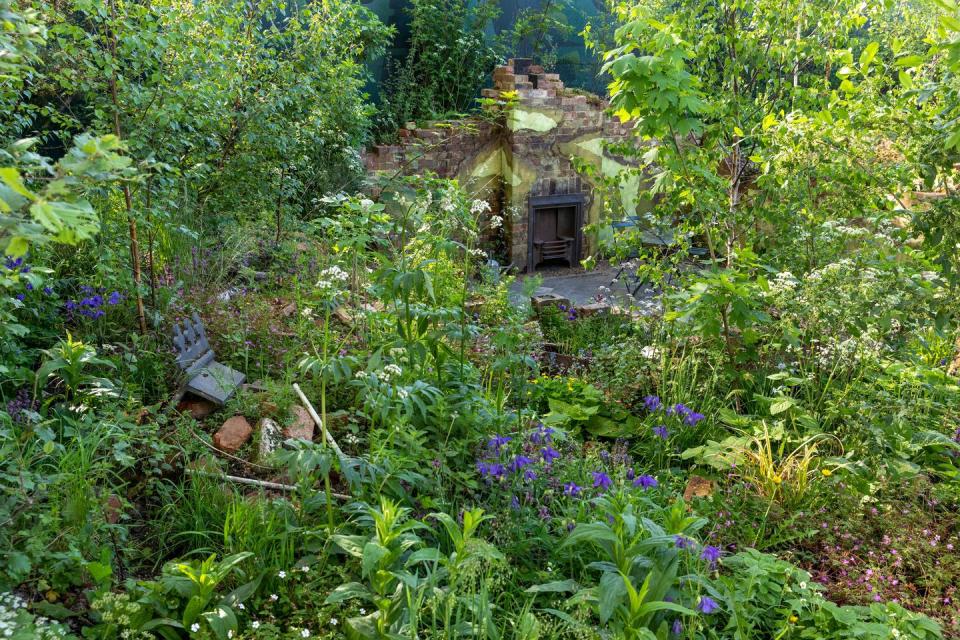
The Nurture Landscapes Garden
• Designed by Sarah Price
All of the materials and plants from the garden will be relocated to Benton End House and Garden Trust in Hadleigh, where artist and plantsman Cedric Morris originally lived and is now managed by The Garden Museum.
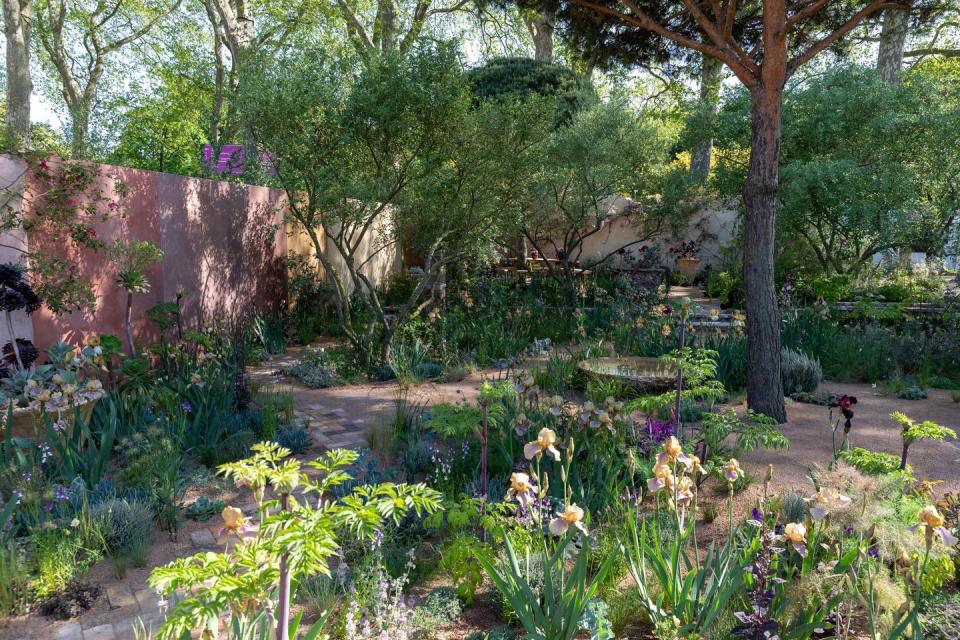
Horatio’s Garden
• Designed by Charlotte Harris and Hugo Bugg
(Project Giving Back): After Chelsea, the garden will form the heart of Horatio's Garden Sheffield & East as its permanent legacy at the Princess Royal Spinal Injuries Centre at Northern General Hospital in Sheffield.
The garden will be eight times bigger than the one at RHS Chelsea and it will be run by the charity who will nurture it and keep it to a Chelsea standard for years to come. The charity's team will provide garden therapy and creative activities in the garden to enhance patients' recovery and wellbeing. It's expected to open in 2024.
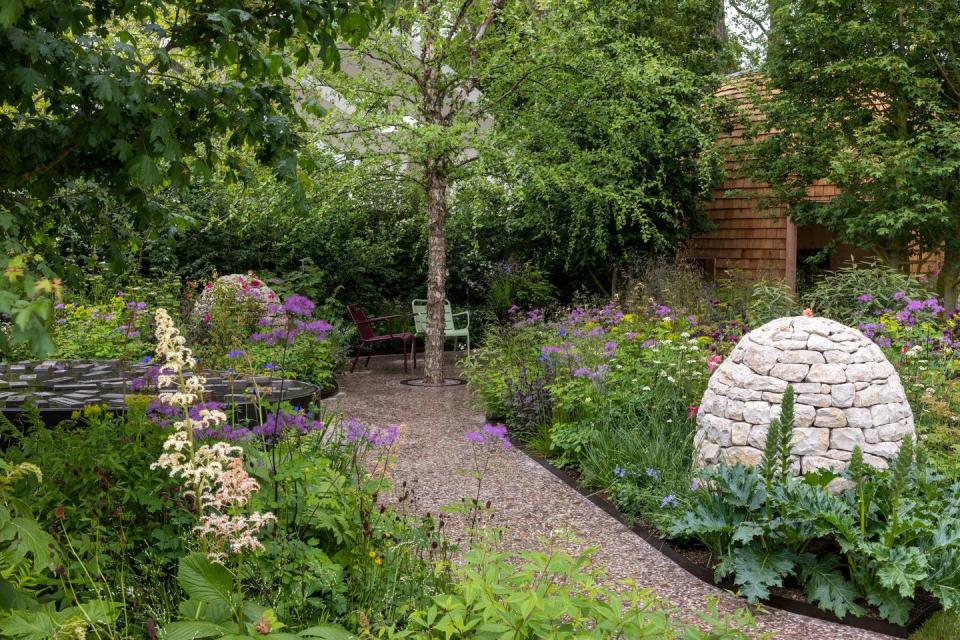
The Savills Garden
• Designed by Mark Gregory
Savills will work with the national charity, Shaw Trust, to relocate the garden to a children’s home in Nottinghamshire. A variety of produce from the garden will also be relocated to the Chelsea Pensioner's allotment.
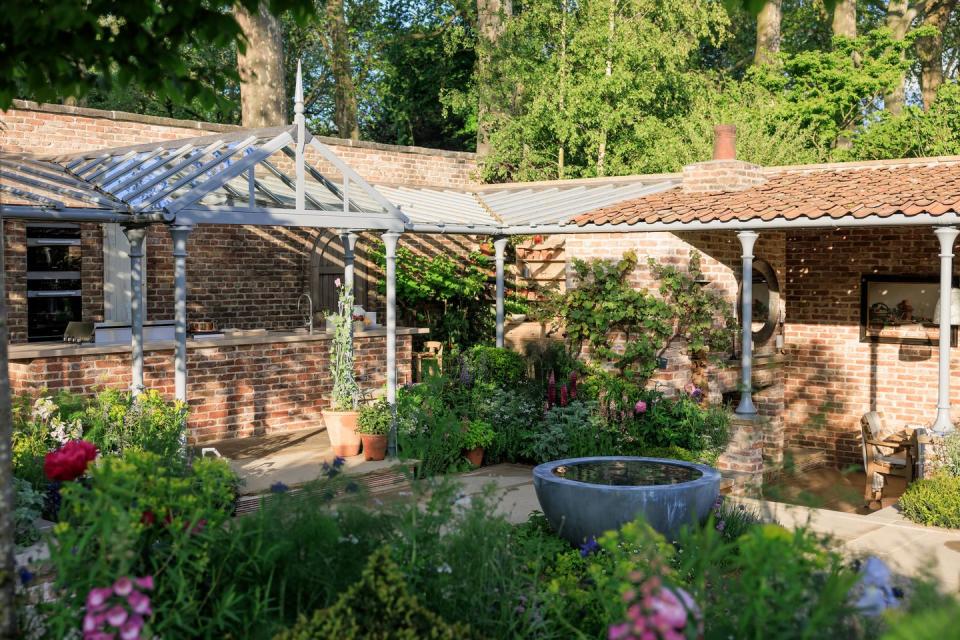
The Myeloma UK Garden - 'A Life Worth Living'
• Designed by Chris Beardshaw
This garden is being repurposed and rehomed to benefit a number of different sites. To raise funds for the charity, the herbaceous plants will be sold via a plant sale following the show.
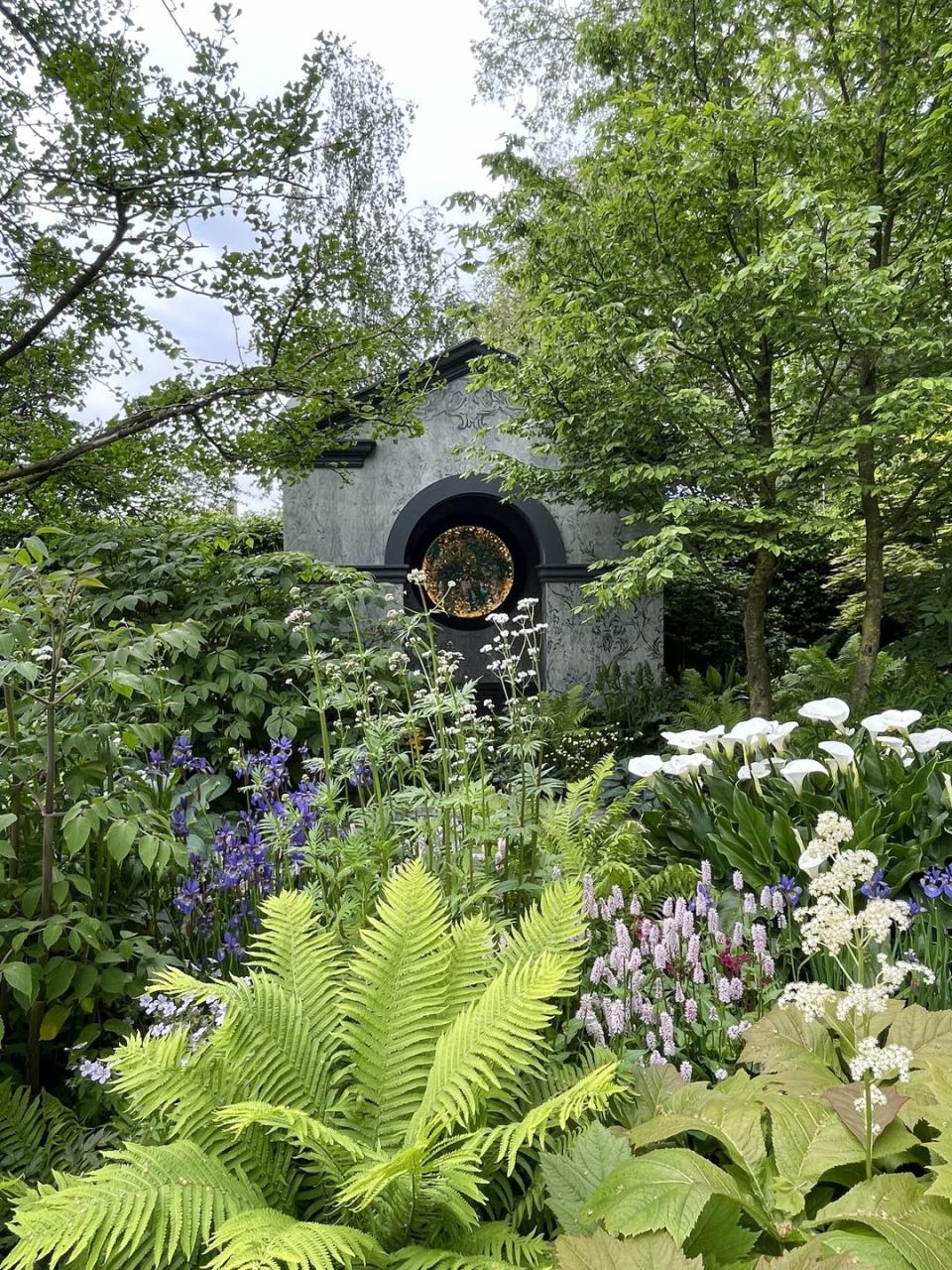
Memoria & GreenAcres Transcendence Garden
• Designed by Gavin McWilliam and Andrew Wilson
The garden, or significant elements, will be relocated to Darwin Bereavement Services Fund's portfolio of crematoria and burial sites in the UK.
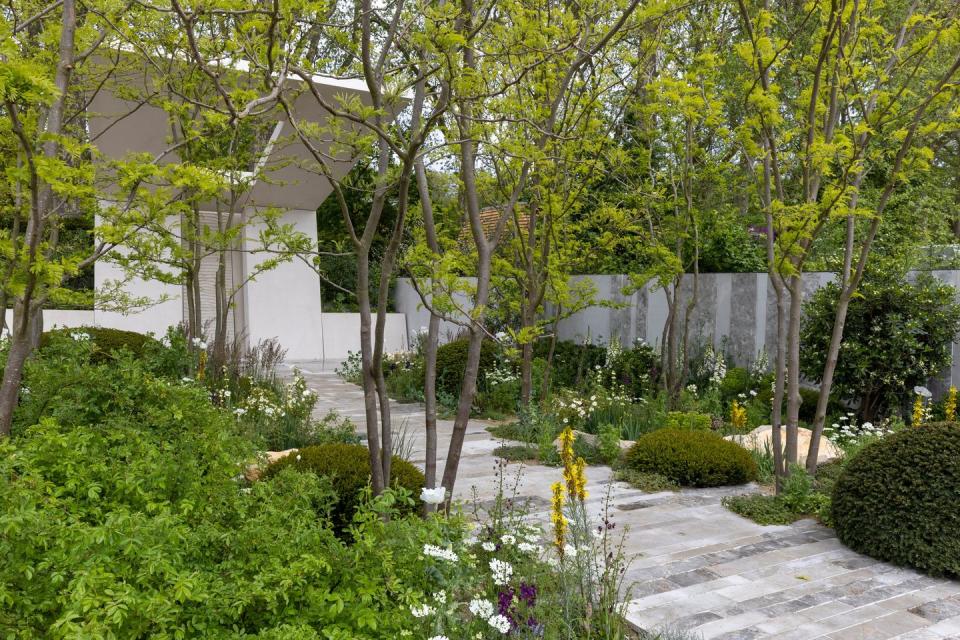
The Samaritans’ Listening Garden
• Designed by Darren Hawkes
(Project Giving Back): Parts of the garden will go on to create a permanent garden at Samaritans in Truro, and other plants will be sent to further Samaritans sites.
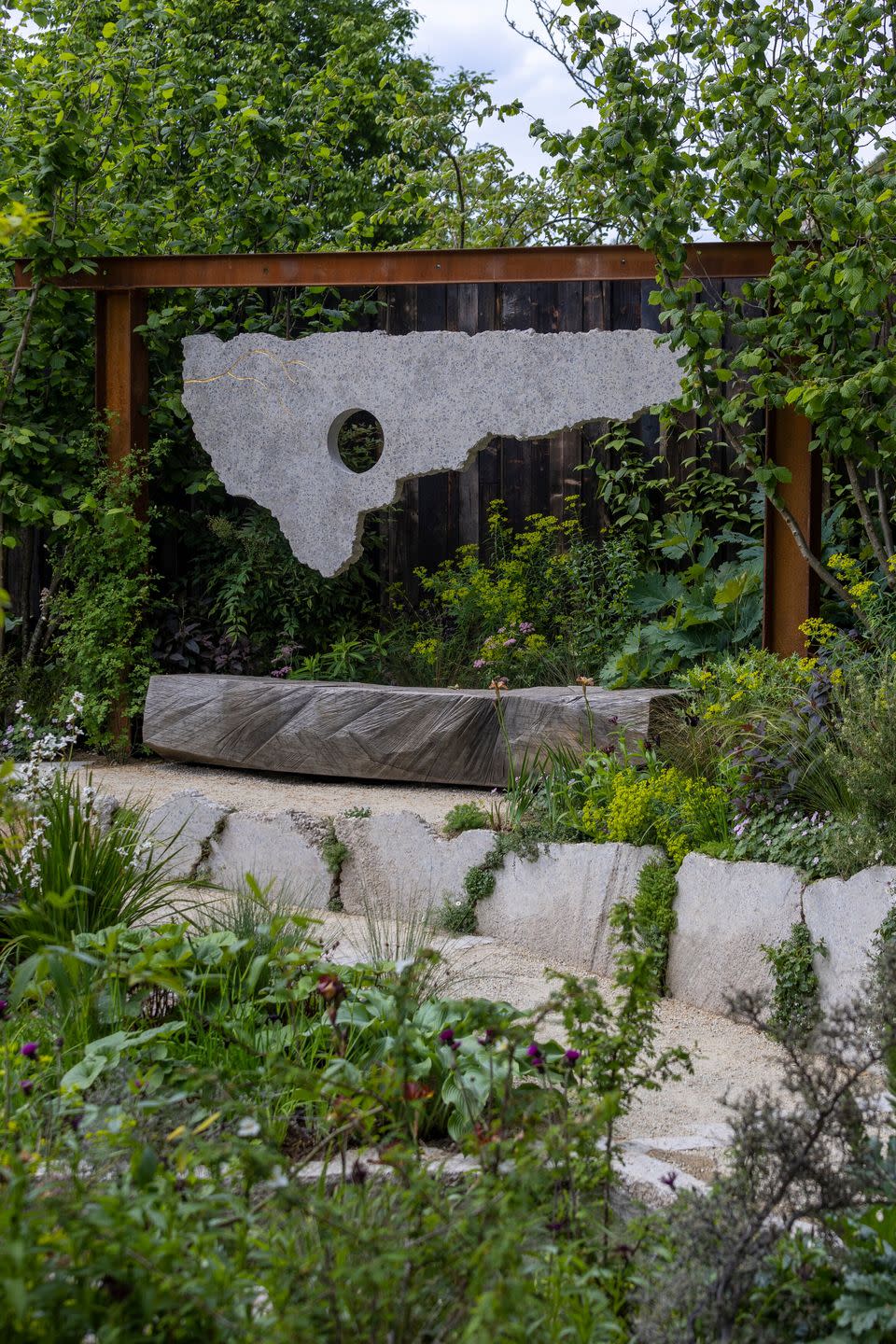
Centre for Mental Health’s The Balance Garden
• Designed by Jonathan Davies and Steve Williams (Wild City Studio)
(Project Giving Back): This garden will move to Tottenham, north London, to create a new space for the community to enjoy.
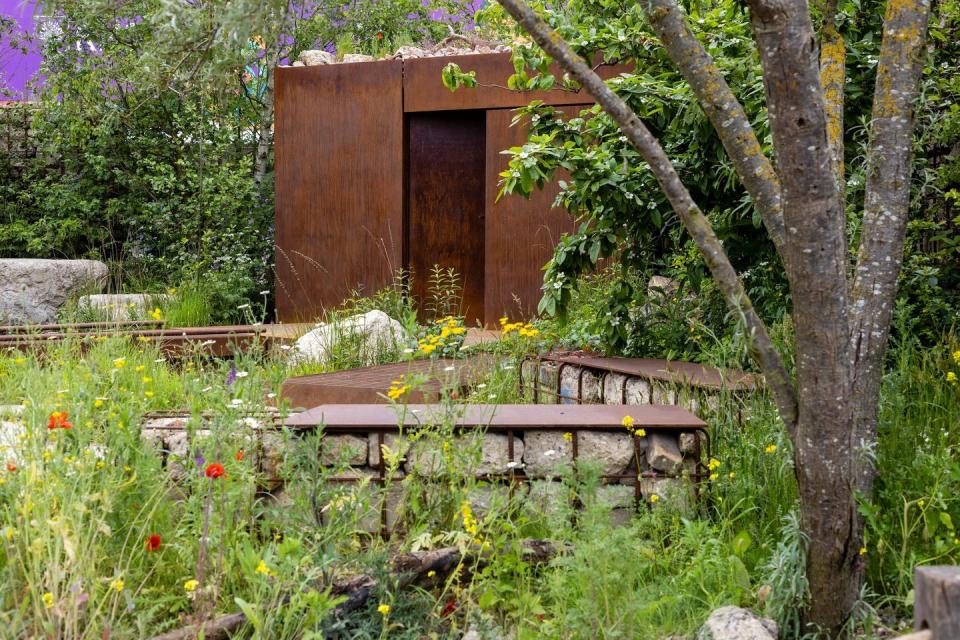
The Fauna & Flora International Garden
• Designed by Jilayne Rickards
(Project Giving Back): In summer 2023, the garden will be relocated to the world famous Biomes of the Eden Project in Cornwall, to be enjoyed by around one million annual visitors.
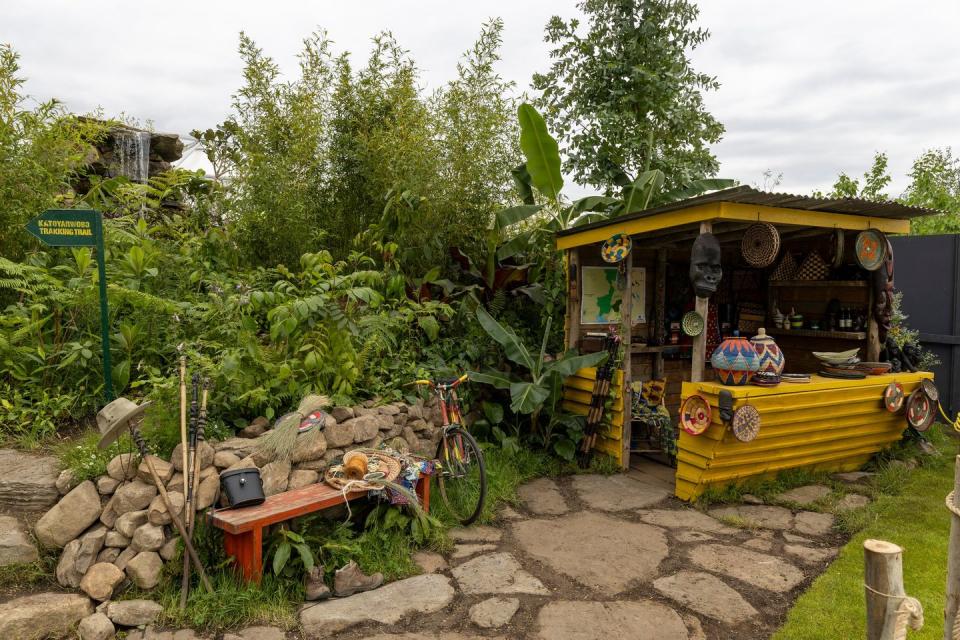
The Royal Entomological Society Garden
• Designed by Tom Massey
(Project Giving Back): The garden will be relocated as a teaching garden and long-term opportunity for insect study as part of a planned network of Royal Entomological Society gardens.
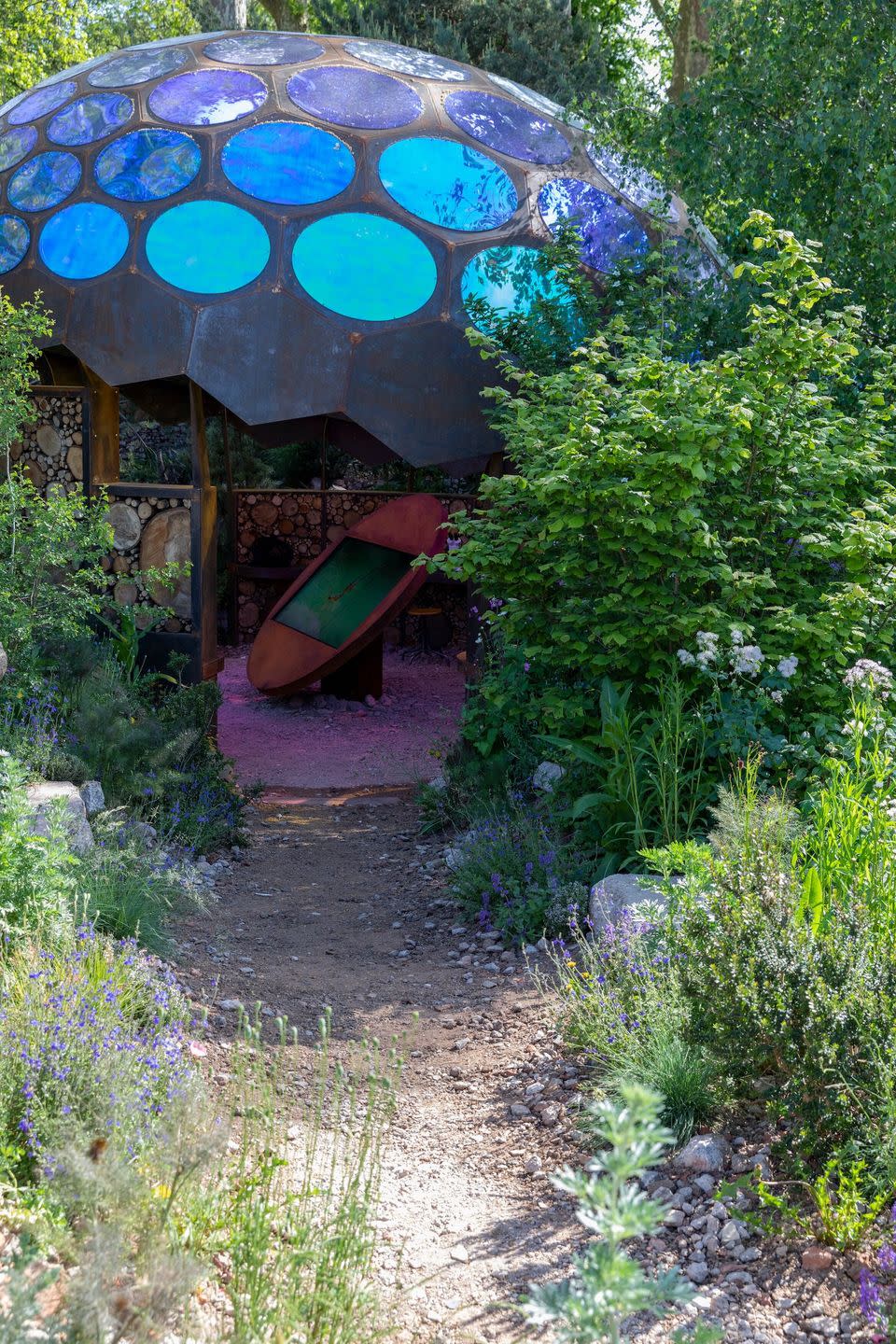
SANCTUARY GARDENS
RSPCA Garden
• Designed by Martyn Wilson
(Project Giving Back): The garden will be relocated to the RSPCA's education hub at Stapeley Grange Wildlife Rescue Centre in Nantwich, Cheshire to support their prevention work. The space will bring essential animal welfare education to communities who have fewer opportunities to connect with their environment. The garden will enable thousands of people to develop kindness and empathy for animals and their environment, as well as offering hands-on activities, outdoor exploration and inquiry-based learning.
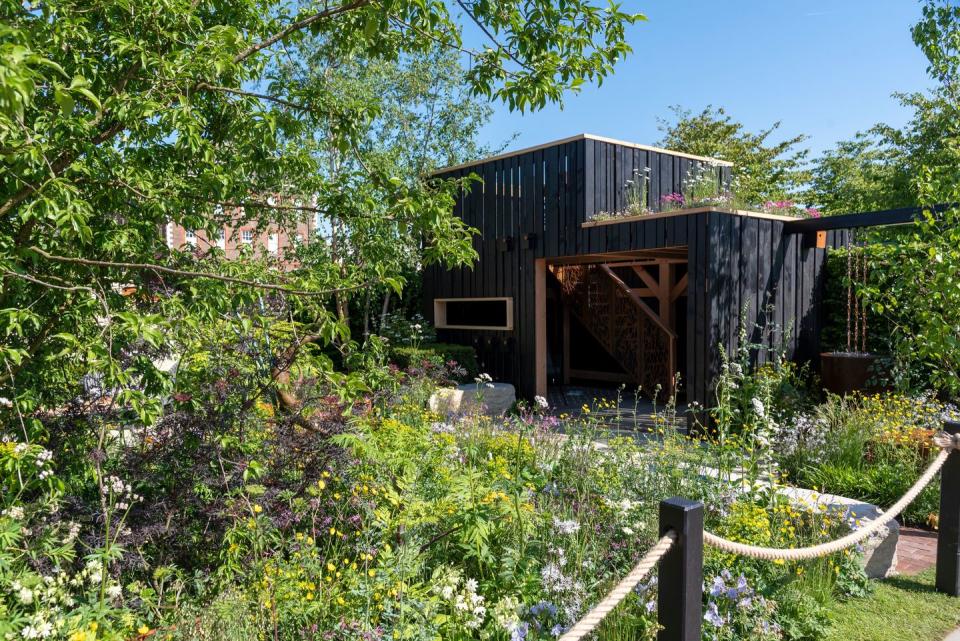
The National Brain Appeal’s Rare Space Garden
• Designed by Charlie Hawkes
(Project Giving Back): The hope is to relocate the garden near to The National Brain Appeal's new Rare Dementia Support Centre in London. The charity has committed to raise up to £7 million to create the world's first centre of excellence for rarer dementias. The garden will ultimately form part of the new centre, allowing visitors to retreat into a rare, safe and calm space.
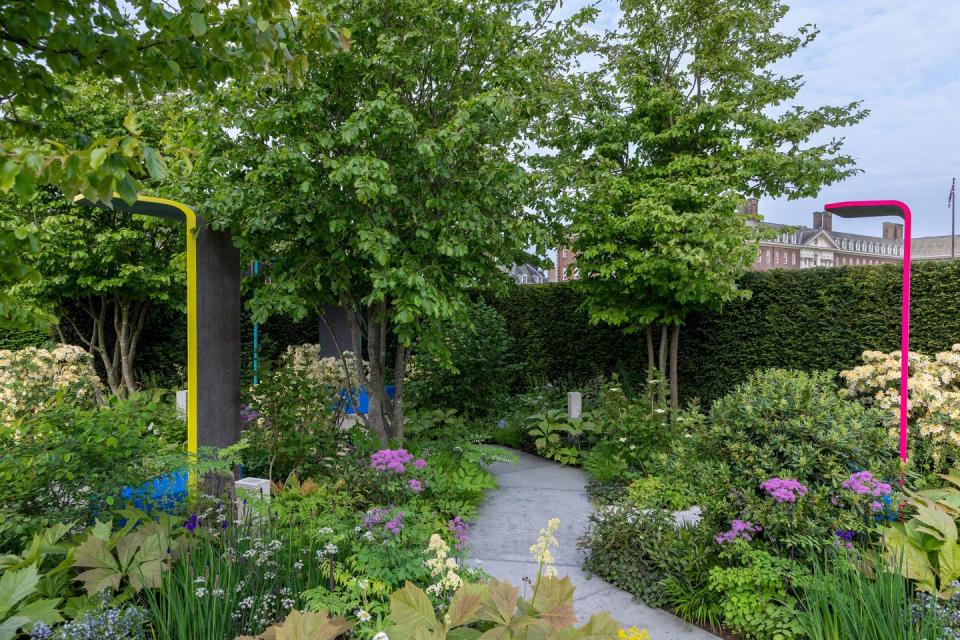
ALL ABOUT PLANTS
The Natural Affinity Garden for Aspens
• Designed by Camellia Taylor
(Project Giving Back): The garden will be relocated to Aspens in Pembury, Kent where the charity has eight residential homes providing a much-needed therapeutic space. It will mainly be used by the residents and visitors who are on the autism spectrum, with learning disabilities or who have complex needs. The surplus plants used for the show will be repurposed and incorporated into Aspens' wider gardens.
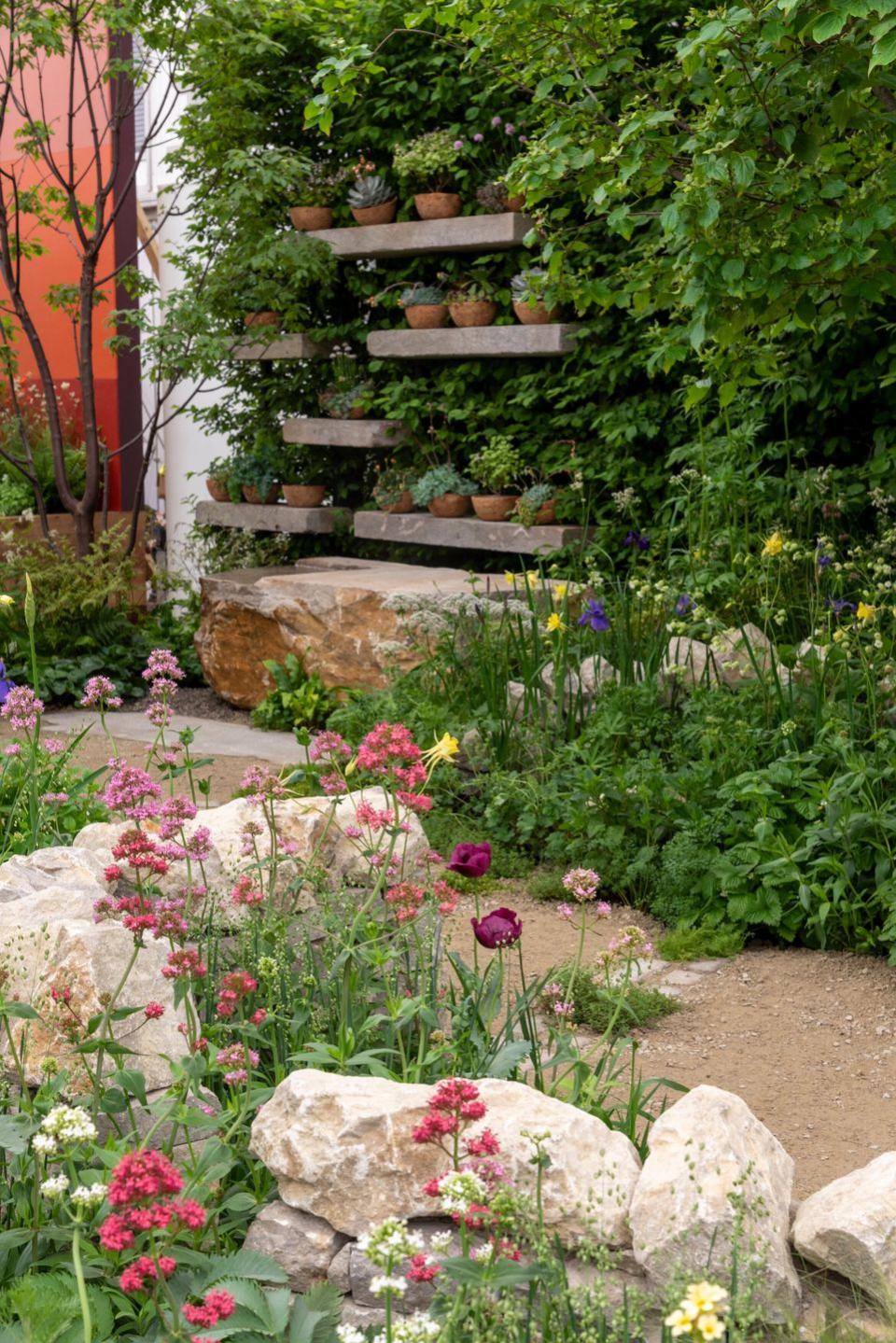
Choose Love Garden
• Designed by Jane Porter
(Project Giving Back): This garden will be relocated to a new home at the Good Food Matters Garden in Croydon. It's a significant move because Croydon is the London Borough of Culture in 2023.
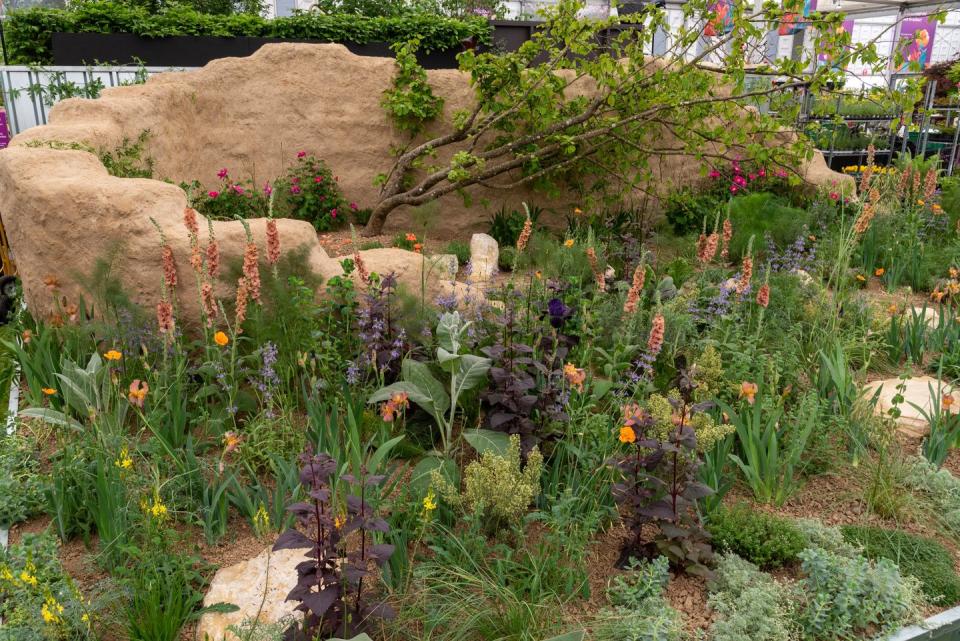
School Food Matters Garden
• Designed by Harry Holding
(Project Giving Back): The garden will be reimagined into two sensory pocket gardens and relocated to two schools – one in London and one in the north of England. One garden, featuring a wetland habitat with a wildlife pond and more moisture-loving plants, will be relocated to a school in the north of England where rainfall levels are above average for the UK. The second garden, re-homing the stabilised rammed earth walls and drought-tolerant plant mix, will be moved to a school in the drier climate of London.
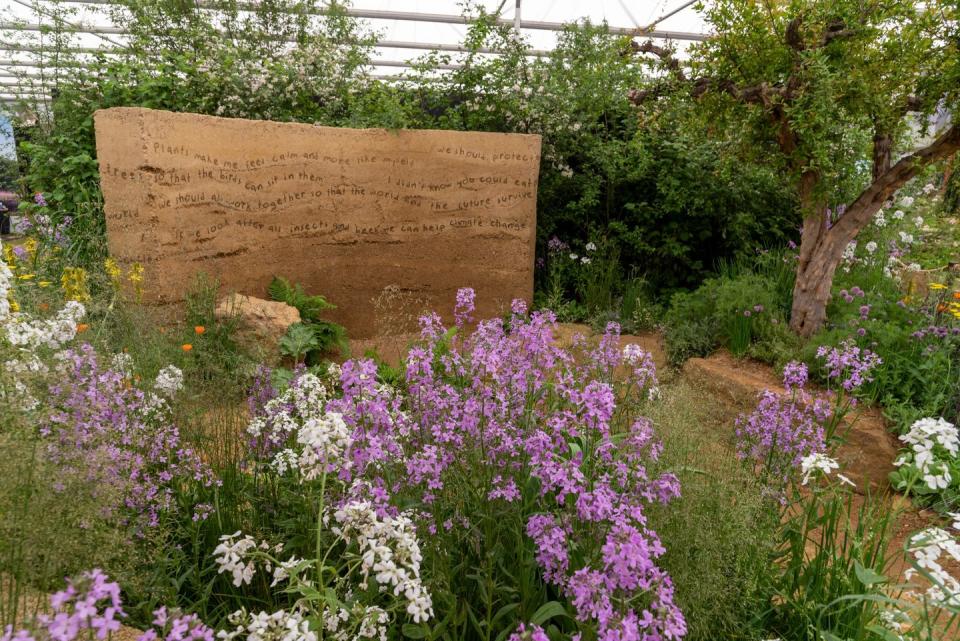
The Sadler's Wells East Garden
• Designed by Alexa Ryan-Mills
(Project Giving Back): Sadler's Wells partners with a number of schools and colleges in north and east London to help embed arts-inspired activities into the school day. One of these is School 21 in Stratford, just a 15 minute walk from Sadler's Wells East. Plants and materials from the garden will be relocated here to help children take part in outdoor arts-inspired activities, learn about plants, and provide a space for children – particularly children with special educational needs – to relax and take time out.
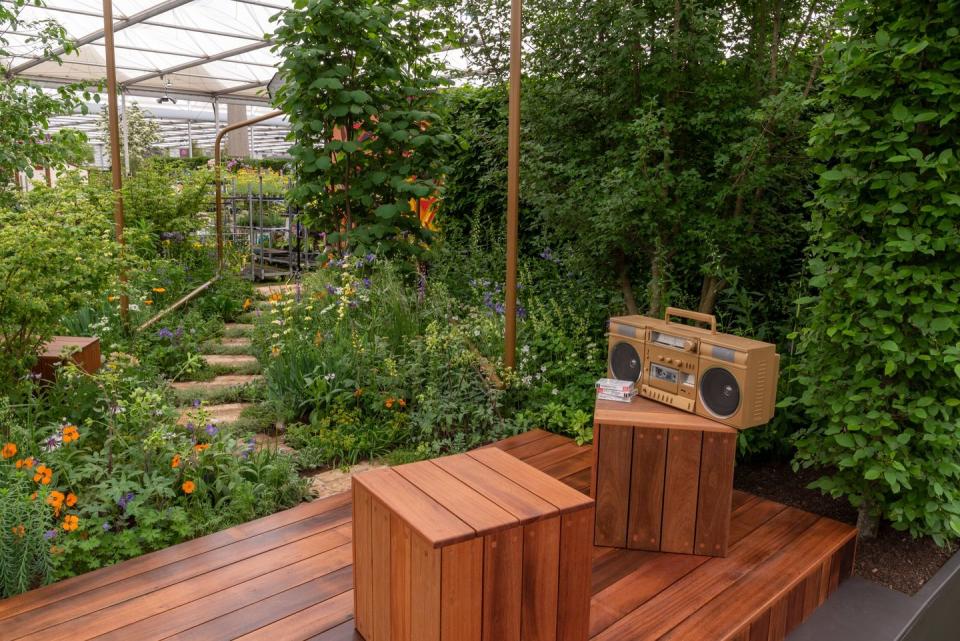
The Talitha Arts Garden
• Designed by Joe & Laura Carey
(Project Giving Back): This garden will be relocated to St Margaret's House in Bethnal Green – a centre for arts and wellbeing opportunities, working with communities and charities to promote positive social change. The garden – located in the grounds of the cafe, open to the community, and provides a space for residents to eat, shop, learn and create – and will be used for outreach, performance and fundraising.
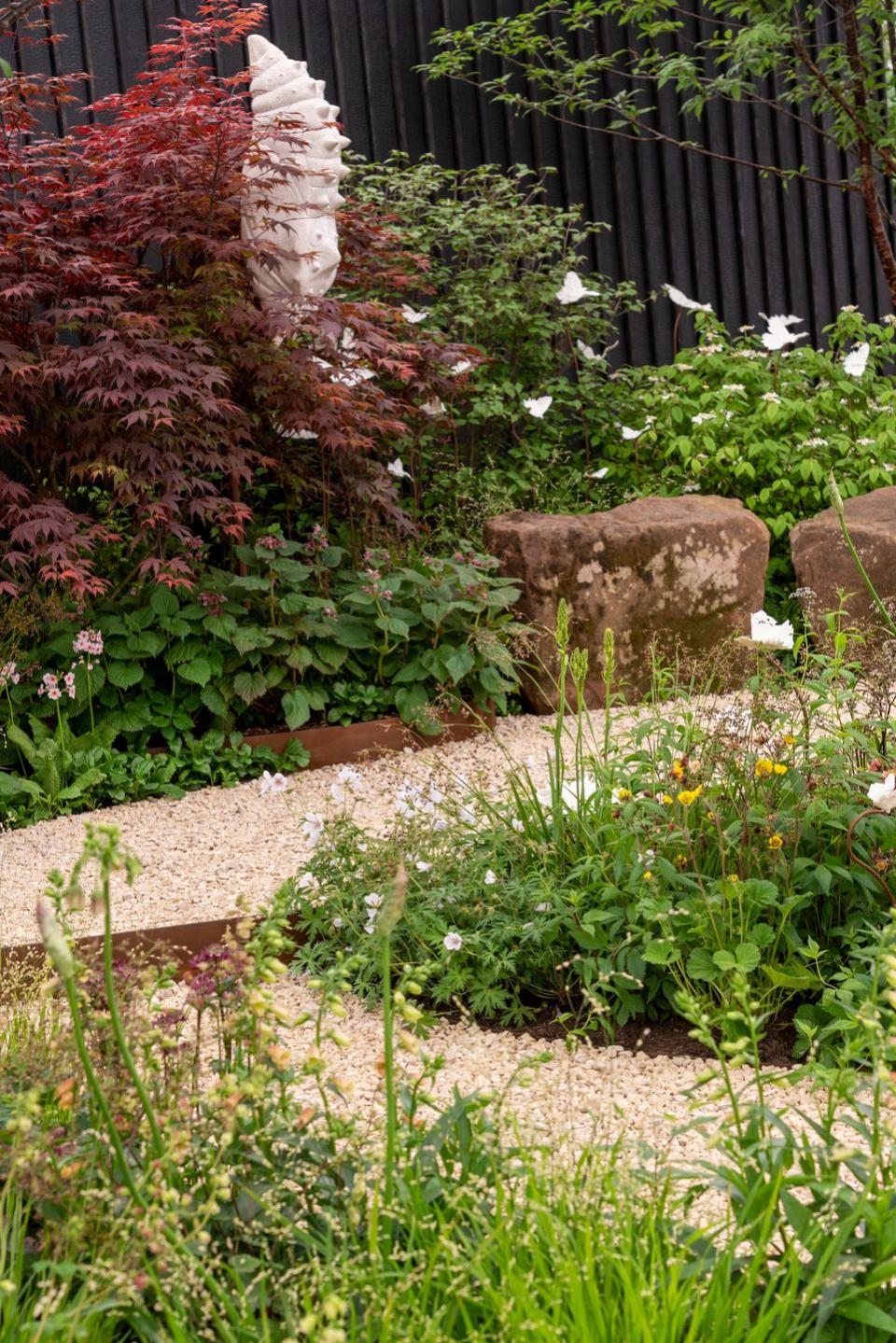
The Teapot Trust Elsewhere Garden
• Designed by Semple Begg
The garden will be relocated to the Royal Hospital for Sick Children within the Queen Elizabeth University Hospital in Glasgow.
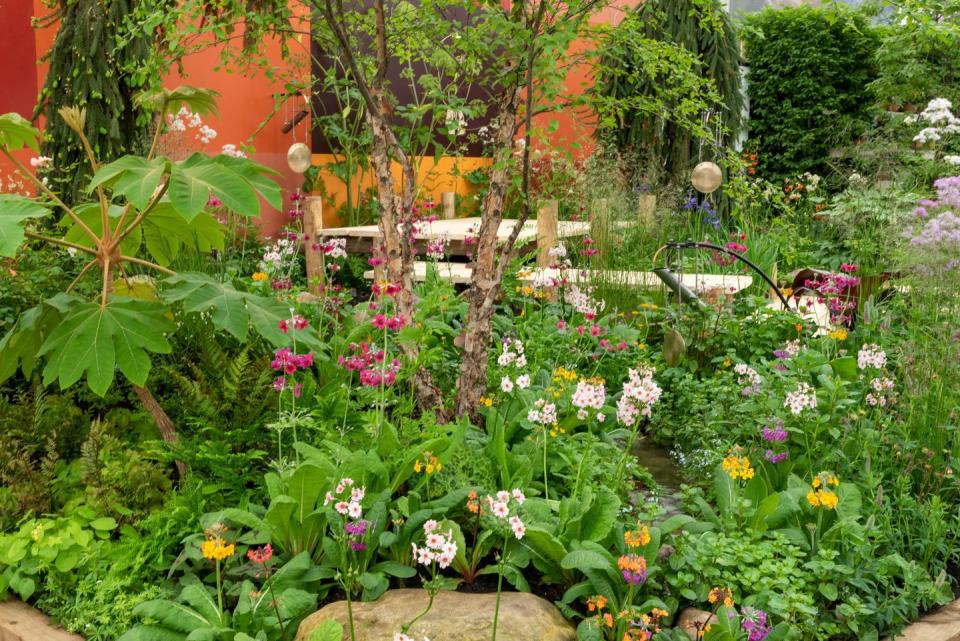
FEATURE GARDENS
RHS and Eastern Eye Garden of Unity
• Designed by Manoj Malde
This garden will be donated to a school.
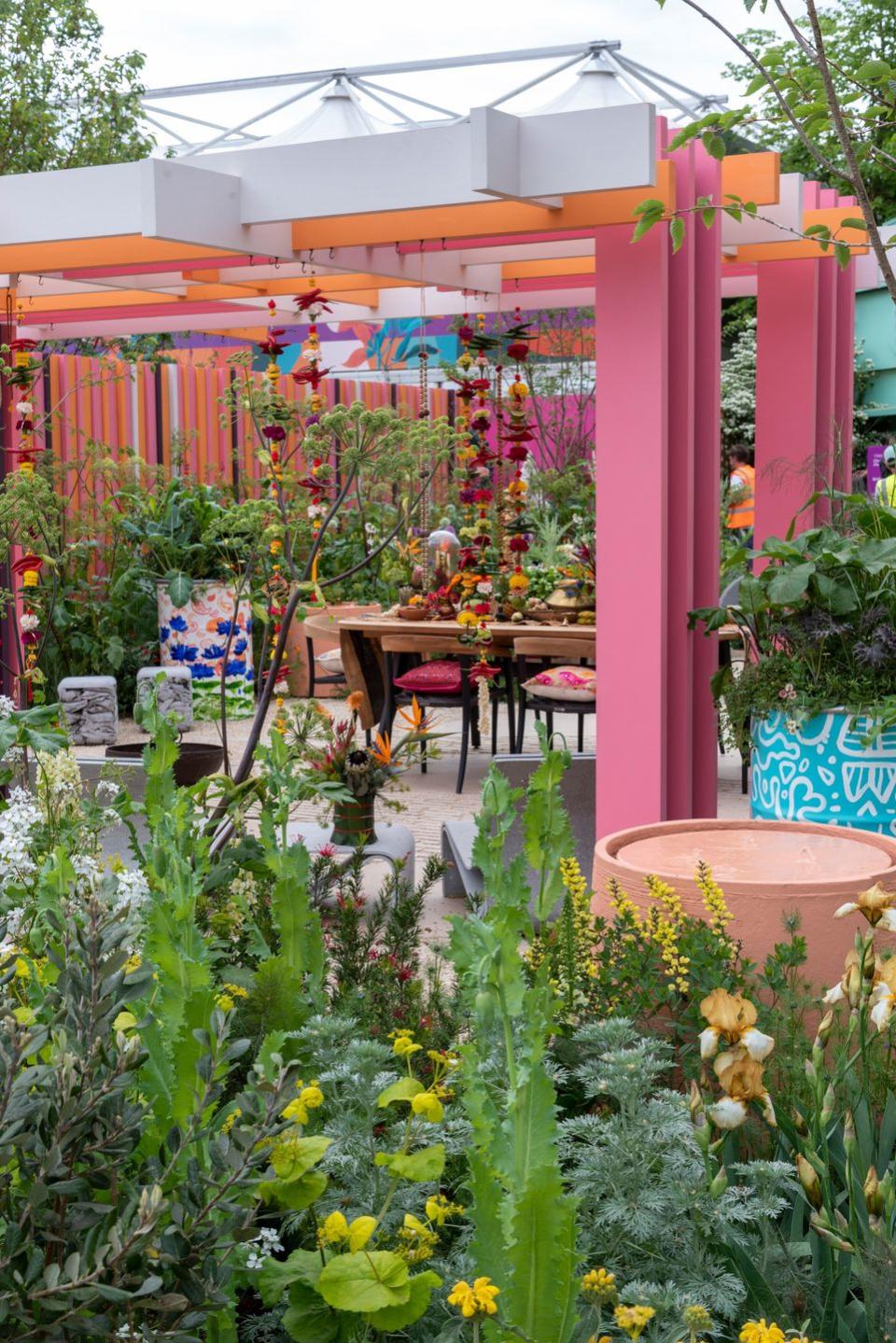
Follow House Beautiful on TikTok and Instagram.
You Might Also Like



